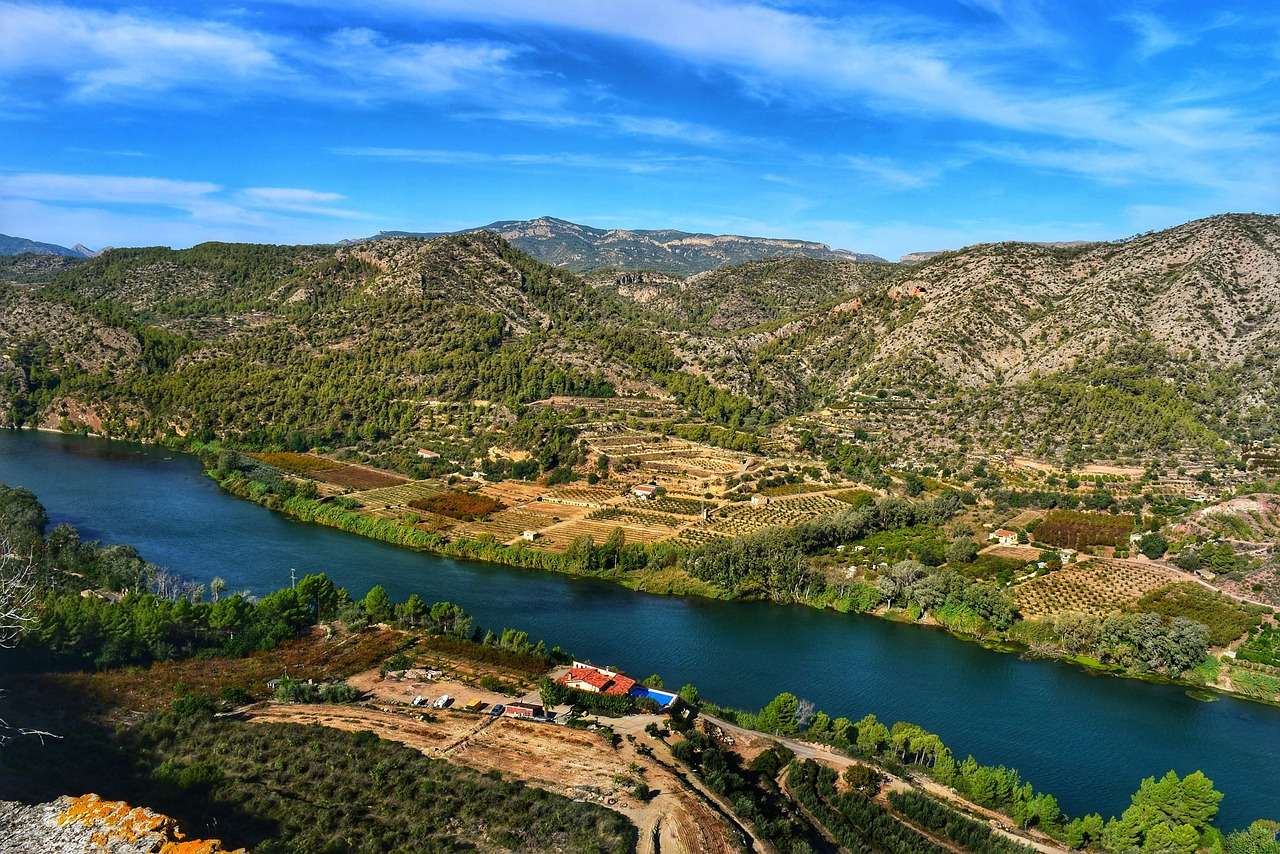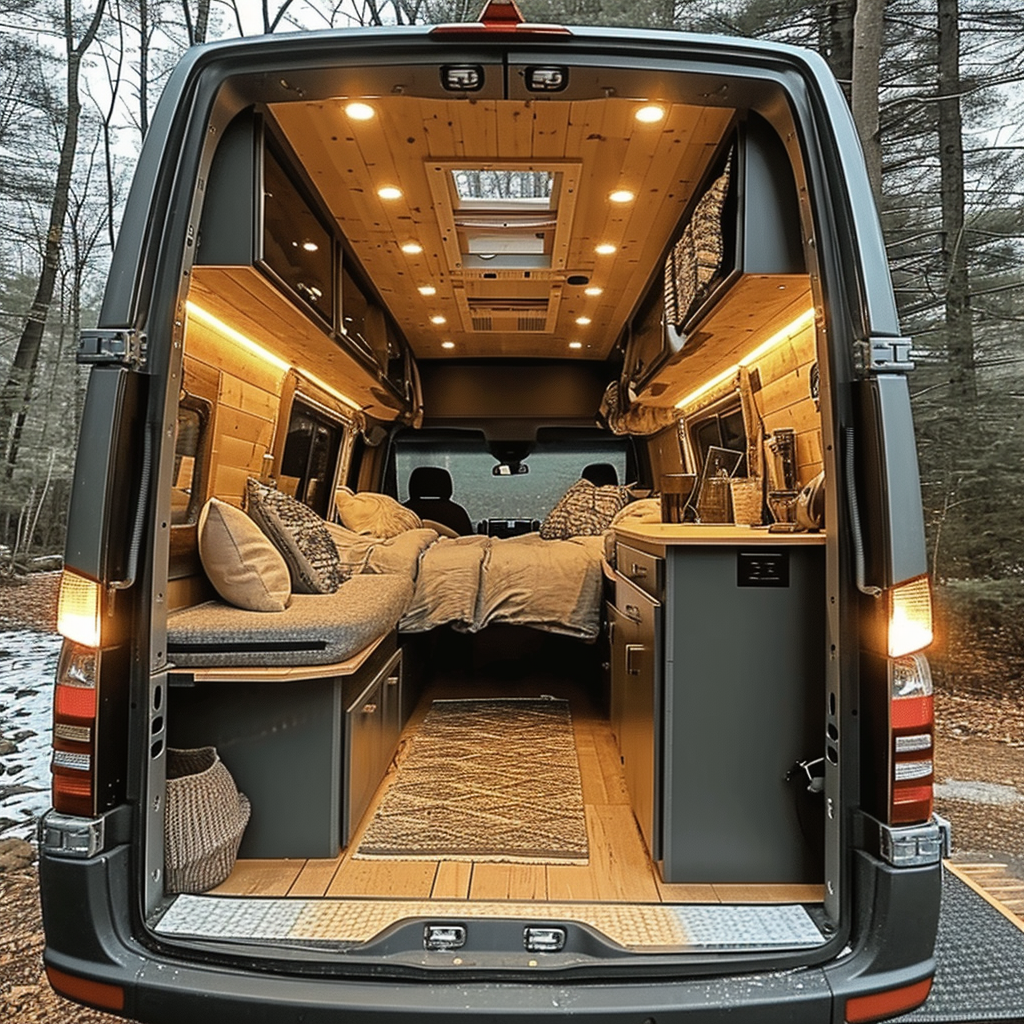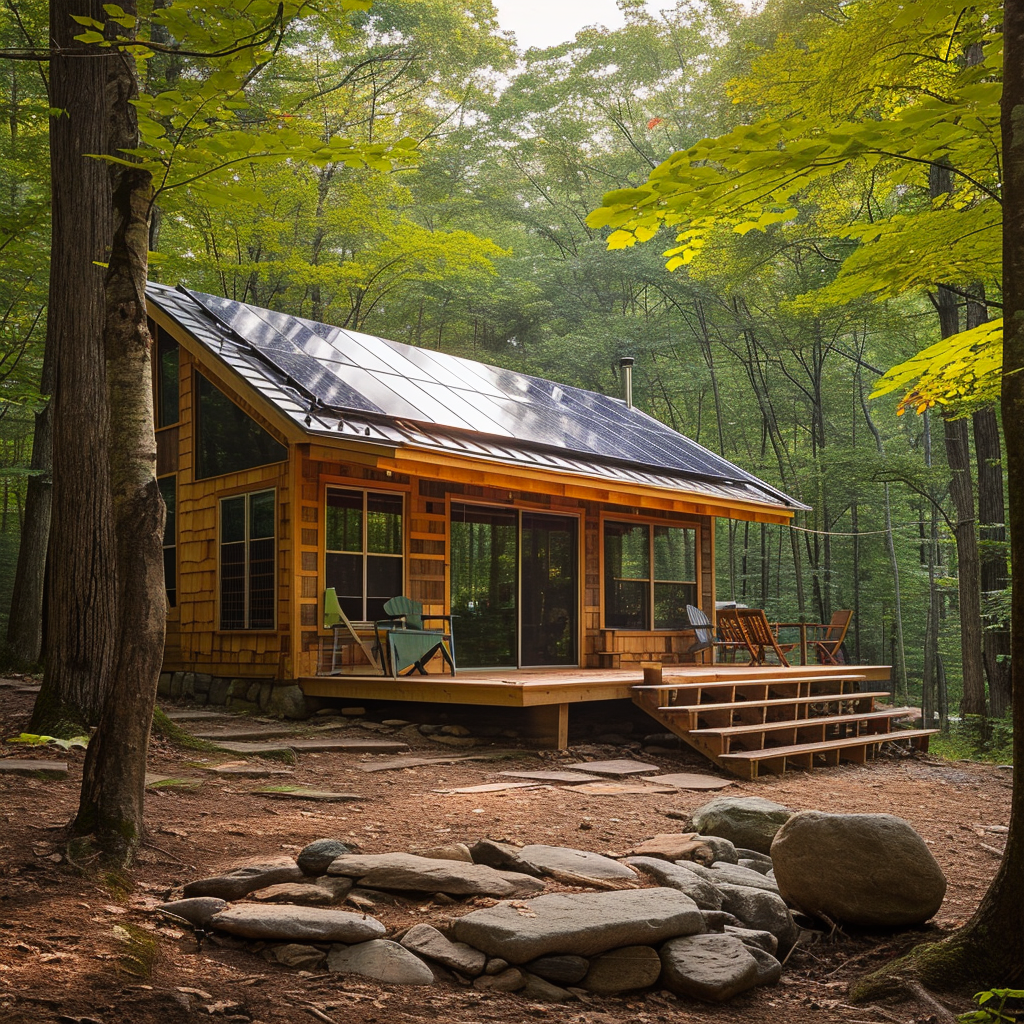Living off-grid may seem like a return to a simpler, more rustic way of life, but that doesn’t mean you have to give up all of the modern comforts and conveniences we’ve grown accustomed to. In fact, with advancements in technology and a growing interest in sustainable living, it is now possible to integrate modern conveniences into off-grid living. From solar panels to composting toilets, this article explores how you can enjoy the best of both worlds – the freedom of living off-grid and the convenience of modern amenities. So lets find out in depth Can You Have Modern Conveniences While Living Off-grid?
Water
Living off-grid doesn’t mean giving up access to clean and abundant water. There are several ways to obtain and manage water sources while maintaining an independent lifestyle.
Water Sources
When it comes to off-grid living, one of the first considerations is the availability of water sources. Depending on the location, there may be natural sources such as springs, wells, or rivers that can provide a constant supply of water. If these options are not feasible, rainwater harvesting can be a viable alternative. Installing a rainwater collection system allows you to capture and store rainwater from your roof, which can then be used for various purposes such as drinking, bathing, and irrigation.
Water Treatment
While natural water sources can provide water, it is essential to ensure it is safe for consumption. Off-grid households often rely on water filtration systems to remove impurities and contaminants. Depending on the level of filtration required, options range from simple carbon filters to more advanced systems like reverse osmosis. It is crucial to regularly monitor and maintain these filtration systems to ensure water quality remains optimal.
Water Conservation
Living off-grid involves being mindful of water usage and implementing effective conservation practices. This can include simple measures like fixing leaky faucets, taking shorter showers, and harvesting greywater. Additionally, investing in low-flow fixtures and water-saving appliances can significantly reduce water consumption without sacrificing comfort or convenience. By adopting these practices, off-grid dwellers can preserve precious water resources and minimize their environmental impact.
Electricity
Having electricity on an off-grid property allows for a comfortable and convenient lifestyle. With advancements in renewable energy technologies, it is now possible to generate electricity independently without relying on the grid.
Solar Power
Harnessing the power of the sun is one of the most popular and efficient ways to generate electricity off-grid. Solar panels, composed of photovoltaic cells, convert sunlight into usable electricity. These panels can be mounted on the roof or ground, capturing sunlight throughout the day. The electricity produced can be stored in batteries for future use or fed directly into the off-grid electrical system.
Wind Power
For locations with consistent wind patterns, wind power can be an excellent source of off-grid electricity. Wind turbines capture the kinetic energy of the wind and convert it into electrical energy. Similar to solar power, the electricity generated can be stored in batteries or used directly to power appliances and devices.
Hydro Power
If you have access to running water, such as a nearby stream or river, hydro power can be a reliable source of off-grid electricity. Small-scale hydro systems utilize the force of moving water to generate electricity through turbines. By harnessing the power of gravity, this renewable energy source can provide a continuous supply of electricity, especially in areas with abundant water resources.
Biomass Power
Biomass power involves converting organic materials, such as wood pellets or agricultural waste, into usable energy. This off-grid energy source is often used for heating and cooking purposes but can also be employed to generate electricity. Biomass power systems can be more complex to set up and maintain compared to other renewable energy options.
Generator
While renewable energy sources are ideal for powering off-grid homes, having a backup generator can provide an additional power source during low energy production periods or emergencies. These generators can be powered by fossil fuels such as gasoline, diesel, or propane. However, it is important to be mindful of the environmental impact and efficiency of these generators, as they can consume significant amounts of fuel.

Heating and Cooling
Maintaining a comfortable living environment in an off-grid home requires thoughtful consideration of heating and cooling options. Renewable energy technologies can help achieve this while minimizing reliance on traditional fossil fuels.
Passive Solar Design
Passive solar design involves strategically positioning and orienting a home to maximize natural heating and cooling. By utilizing the sun’s energy, this design approach helps regulate indoor temperatures and reduce the need for artificial heating and cooling systems. Features like south-facing windows, thermal insulation, and thermal mass materials contribute to the overall efficiency of a passive solar home.
Wood Stove
Wood stoves are a popular choice for off-grid heating due to the abundance and affordability of firewood. These stoves burn wood as a renewable fuel source, providing both warmth and ambiance. However, it is important to ensure proper installation, ventilation, and safety precautions when using a wood stove to avoid hazards such as fire or indoor air pollution.
Geothermal Heat Pump
Geothermal heat pumps utilize the stable temperature underground to heat and cool homes efficiently. This renewable energy technology relies on circulating fluid through a series of pipes buried in the ground, extracting heat during winter and dissipating heat during summer. Geothermal heat pumps can significantly reduce energy consumption for heating and cooling, providing a reliable and sustainable solution for off-grid living.
Cooking
Preparing meals is an essential part of daily life, even when living off-grid. Thankfully, there are several options for off-grid cooking that do not require a traditional electric or gas-powered stove.
Solar Cookers
Solar cookers utilize the energy from the sun to cook food. These devices come in various forms, such as box cookers, parabolic cookers, or panel cookers, and are all designed to trap and concentrate sunlight for cooking. Solar cookers are an environmentally friendly and sustainable cooking option, requiring no fuel except sunlight.
Wood Burning Stove
Wood burning stoves can serve a dual purpose of heating and cooking. These stoves burn firewood or biomass, providing a reliable and renewable fuel source for cooking. They come in various designs, including portable camping stoves and larger stoves suitable for off-grid homes. Proper ventilation and safety precautions should be taken when using wood burning stoves indoors.
Propane Stove
For those who prefer a more familiar cooking experience, propane stoves can be a reliable off-grid option. Propane, stored in tanks, fuels these stoves, allowing for precise temperature control and conventional cooking methods. However, it is important to ensure proper storage and handling of propane to prevent leaks or accidents.

Refrigeration
Preserving food and perishable items is a necessity, even in off-grid living setups. Fortunately, there are off-grid refrigeration options that do not rely on traditional electric refrigerators.
Solar Refrigeration
Solar refrigerators and freezers are designed to run on electricity generated from solar panels. These appliances use efficient compressors and insulation to cool and preserve food. Excess solar energy can be stored in batteries, allowing for continuous refrigeration even during periods of low solar power production.
Propane Refrigerator
Propane refrigerators work by utilizing a gas flame to heat ammonia, which then cools the system through evaporation and condensation. These refrigerators do not require electricity and can be an ideal off-grid solution for cooling perishable items. However, careful monitoring of gas supply and safety measures is necessary when using propane appliances.
Internet and Communication
Staying connected and accessing the internet is an important aspect of modern life. Even when living off-grid, various communication options are available.
Satellite Internet
Satellite internet connects off-grid users to the internet via satellites orbiting the Earth. It allows for internet access in remote areas where traditional wired or cellular networks may not reach. While satellite internet can be more expensive and have limitations such as latency, it provides off-grid individuals with essential communication and online capabilities.
Cellular Internet
In areas with decent cellular coverage, cellular internet is a practical option for off-grid living. Cellular data plans, along with mobile hotspots or dedicated cellular routers, enable internet access through cellular networks. However, it is important to research and select a reliable cellular network provider in the specific off-grid location.
Radio Communication
For communication purposes in remote areas, radio communication can bridge the gap where traditional communication infrastructure is lacking. Two-way radios, walkie-talkies, and ham radios can provide a means of communication within a limited range, allowing off-grid dwellers to stay connected with others in their immediate vicinity.

Entertainment
Living off-grid does not mean sacrificing entertainment options. With a little creativity and the right equipment, there are various ways to stay entertained while enjoying an independent lifestyle.
Solar-powered TV
Solar-powered TVs allow off-grid individuals to access entertainment options while minimizing reliance on the grid. These TVs are designed to run on low power and can be powered by solar panels and stored energy. With advances in technology, solar-powered TVs now offer high-quality visuals and audio, providing a compelling off-grid entertainment experience.
Portable Radio and Music Players
Portable radios and music players have long been a source of entertainment for outdoor enthusiasts and off-grid enthusiasts alike. These devices can operate on batteries or be charged using renewable energy sources such as solar or hand cranks. By tuning into local radio stations or playing stored music, off-grid individuals can enjoy a diverse range of audio entertainment options.
Books and Board Games
Embracing traditional forms of entertainment like books and board games can add a nostalgic and rewarding dimension to off-grid living. With no reliance on electricity or technology, books can provide hours of escape and education, while board games can foster social interaction and friendly competition among off-grid community members.
Appliances
Off-grid living doesn’t mean giving up necessary home appliances. With energy-efficient options and solar-powered alternatives, essential household tasks can still be carried out efficiently.
Energy-efficient Options
Choosing energy-efficient appliances is essential for off-grid living. These appliances are designed to minimize energy consumption while still performing their intended functions effectively. Energy-efficient refrigerators, washing machines, and ovens can significantly reduce energy demands, allowing off-grid residents to achieve a comfortable lifestyle while conserving valuable resources.
Solar-powered Appliances
Solar-powered appliances use electricity generated from solar panels to function. These appliances include solar ovens, solar water heaters, solar-powered fans, and solar chargers for electronic devices. By utilizing sunlight as a renewable energy source, off-grid individuals can power essential appliances and reduce their reliance on traditional electrical infrastructure.
Waste Management
Managing waste effectively is crucial for off-grid living to minimize environmental impact and maintain a healthy living environment. Several sustainable waste management practices can be implemented.
Composting Toilet
Composting toilets are an eco-friendly alternative to traditional flush toilets. They facilitate the natural breakdown of waste into compost, which can be used to enrich the soil. Composting toilets can be installed in off-grid homes and significantly reduce water consumption while providing a safe and hygienic waste disposal option.
Greywater System
Greywater systems collect and treat wastewater from sources such as sinks, showers, and laundry. This treated water can then be reused for purposes like irrigation or flushing toilets. Implementing greywater systems minimizes the strain on water resources, reduces the environmental impact of wastewater disposal, and promotes sustainable water management.
Recycling
Off-grid living does not exempt individuals from responsible waste disposal practices. Recycling should still be a priority to minimize waste and reduce environmental pollution. It involves separating recyclable materials such as paper, plastics, and glass from non-recyclable waste. Properly managing and disposing of recyclable materials contribute to a sustainable off-grid lifestyle.

Transportation
Maintaining transportation options is vital for off-grid communities, ensuring access to essential services and opportunities for exploration.
Electric Vehicles
Electric vehicles (EVs) offer an eco-friendly transportation solution for off-grid individuals. EVs powered by electricity generated from renewable energy sources contribute to a sustainable off-grid lifestyle by reducing reliance on fossil fuels and minimizing carbon emissions. Solar panels or wind turbines can charge EVs, allowing for clean and efficient transportation.
Bicycles
Bicycles can be an excellent mode of transportation for shorter distances in off-grid areas. They are environmentally friendly, cost-effective, and promote physical fitness. With the appropriate infrastructure and maintenance, bicycles can provide off-grid individuals with efficient mobility while reducing their carbon footprint.
Public Transportation
In areas with accessible public transportation networks, utilizing buses, trains, or other shared modes of transportation can be an effective off-grid mobility solution. Public transportation reduces the reliance on personal vehicles, decreases traffic congestion, and minimizes air pollution. Off-grid individuals can benefit from the convenience and eco-friendliness of public transportation options when available.




